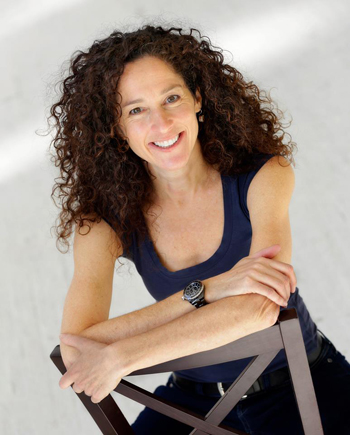Jody Berger was healthy all her life, until age 43, when she received a shocking diagnosis: She was told she had multiple sclerosis (MS).
She spent the next 14 months going from doctor to doctor, receiving various opinions, until she finally received a diagnosis that led to a cure. She chronicles this journey in her book, “Misdiagnosed: One Woman’s Tour of—and Escape from—Healthcareland,” which was released Sept. 23.
It all started in 2009, when Berger, a Denver-based freelance journalist and holistic health coach, noticed a strange tingling in her fingers. She went to a doctor, who quickly told her she needed to see a neurologist.
The neurologist recommended blood tests and an MRI, and the day after Berger’s MRI, he called her at home to tell her she had MS, a treatable but incurable disease in which the immune system attacks the protective sheath around the nerves, interrupting communication between the brain and the body.
“I was terrified, and in disbelief,” Berger recalls. The doctor offered to stay a few minutes late, if she wanted to talk about it. “Of course, I want to talk about it!” she responded. Right away, she began taking steroids to suppress her immune system.
The diagnosis just didn’t feel right to Berger, so she decided to seek other opinions. “Taking a pill didn’t feel right, I wanted to do more to improve my health,” she says.
Ultimately Berger consulted more than a dozen doctors and received many different diagnoses, from vitamin deficiency to metal toxicity to depression. After more than a year of terror and frustration, she found a doctor who recommended an elimination diet. By reintroducing various foods into her diet, Berger discovered that she had non-celiac gluten sensitivity. She had been tested for celiac with a negative result; little did she know that the tingling was just a common symptom of the non-celiac sensitivity.
“I was ecstatic,” Berger says. “This was something I could control, and I could do something about my health.”
How to Avoid a Misdiagnosis
Misdiagnosis is an all-too-common phenomenon; a 2009 study in the Journal of the American Medical Association estimates that misdiagnoses result in between 40,000 and 80,000 hospital deaths annually.
Looking back, Berger realizes that she made some critical mistakes in her healthcare journey. When she went to a neurologist for the first time, “I was shivering and afraid before he even got in the room,” she recalls. She advises women to find a doctor who feels like someone they can work with and makes them feel comfortable.
It’s also important to come prepared. “Go in with a list of questions because doctors are always in a hurry,” she says. “Say, ‘How much time do we have together?’ That way you can prioritize your questions.”
Mary Shomon, a patient advocate, says that doctors who treat women often attribute symptoms such as fatigue to hormones, lifestyle, age or depression, rather than testing for and diagnosing specific conditions. She recommends that women read and learn about their symptoms, ask for tests to rule out conditions they suspect they might have, and seek second—or even third—opinions if something seems off.
Dr. Kimberly Kenton, director of Integrated Pelvic Health and chief of Female Pelvic Medicine and Reconstructive Surgery at Northwestern, says beware of overly simplistic, one-option treatment plans: “Patients should be given a range of options, where the doctor explains the risks and benefits and then tailors treatment to meet that patient’s goals.”
Patients should also speak frankly with their doctors, according to Dr. Dana Wood, an internist at the Northwestern’s Glenview Outpatient Center. “Report concerns regarding the diagnosis,” she says. “When you’re working with an internist like me, we’ll often refer you to a specialist.”
For Berger, it was important to trust her own instincts—after all, it was her body’s response, not a test, that led her and her doctor to the correct diagnosis.
Pictured above: “Misdiagnosed: One Woman’s Tour of—and Escape from—Healthcareland” by Jody Berger


